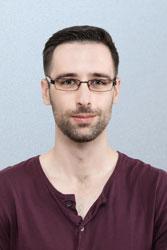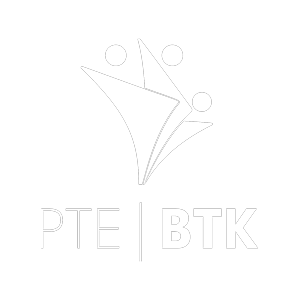Management of the Faculty
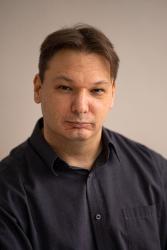
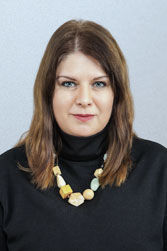
Dr. habil. Beatrix Lábadi
Vice Dean for Science and Project Management
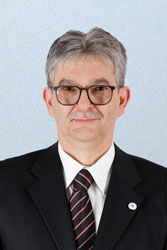
Dr. habil. Péter Várnagy
Vice Dean for Foreign Relations and Accreditation
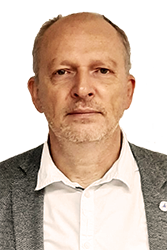
Dr. Robert Wolosz
Vice Dean for Education and Student Welfare
International Office
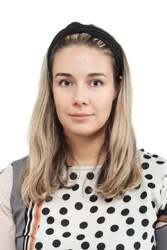
Ms. Vanda Bőczin-Sirkeci
international coordinator

Ms. Virág Füzes
mobility coordinator
Office Hours: Tuesday, Thursday 10-12 a.m.

Ms. Ágnes Kisföldi-Szabó
study administrator
Office hours: Monday, Wednesday, Friday - 9-12 a.m.
- Andragogy (Adult Education) MA,
Human Resource Counselling MA
- Archeology BA, MA
- Psychology BA, MA

Ms. Piroska Bakonyi
study administrator
Office hours: Monday, Wednesday, Friday - 9-12 a.m.
- English Studies BA, MA;
American Studies MA
- Hungarian BA
- International Relations BA, MA

Ms. Luca Pap-Major
study administrator
Office hours: Monday, Wednesday, Friday - 9-12 a.m.
- Communication and
Media Science BA
- Liberal Arts BA
- Pedagogy BA
- Romance Languages BA
(French, Italian, Spanish) BA
- Slavonic Languages (Russian) BA
- Social Work BA, MA;
Social Policy MA
Institutes and Departments
Institute of Psychology
Putz Ádám
Head of the International Programme
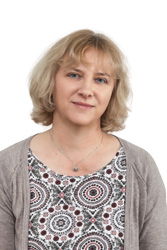
Ms. Anita Velősy
Department administrator
Pychology, BA
The general aim of the programme is to contribute to the intellectual and personal development of each student. Some students will choose to pursue more advanced studies in specialized areas, whereas others will choose to develop their studies within a broader educational experience before moving into a career in a wide range of employment sectors. The programme endeavours to enable students to develop their capacity to contribute both to their own development and to that of the society in their future career.
Pychology, MA
The aim of the programme is to train professionals in psychology, who, with their knowledge acquired in the various fields of psychology. The students will be qualified in more branches of psychology and gain special knowledge in the field of Counselling and School Psychology. They will study the methodologies and instruments used in psychology, and will be able to use these with individuals, groups or organizations especially schools for their understanding and development. The programme provides adequate training to acquire further, legally stipulated, specialized qualifications in the various fields of psychology. They are prepared to continue their studies at the doctoral level.
Institute of Social Relations

Dr. Melinda Szappanyos Phd.
Head of the Programme
International Relations BA

Dr. Andrea Schmidt, Gál Zoltánné Phd.
Head of the Programme
International Relations MA
International Relations, BA
The program is designed for students who want to learn about political systems, international relations, political institutions, history and related fields. The goal of the program in International Relations is to train highly qualified experts with broad education in the social sciences who know the theoretical and practical context of international relations. Graduated students will gain practical knowledge related to the system of international organizations and relations, local governmental systems and local politics, how states and political organizations function, the world of NGOs and political parties, the types of electoral systems and forms of governments, the concept of political socialization, political culture, political communication and how the European Union works.
International Relations, MA
The goal of the MA degree programme in International Relations is to train highly qualified experts with broad education in the social sciences who can interpret Hungary’s place and role in the international situation and in Europe; and know the theoretical and practical context of international relations. The graduates of the programme have a high level of proficiency in language and negotiation techniques. Their historical, sociological and professional education enables them to think in terms of analysis and synthesis. The knowledge of their subject matter enables them to understand and predict the economic, legal and political processes of the international system. They are able to put the perspectives of the East-Central European region into context amongst the many challenges of international relations. The graduates know and understand the developmental tendencies of the regions outside Europe and have thorough disciplinary knowledge in the areas of civilisation, world economy, international law, political science as well as practical skills in diplomacy, protocol and negotiation techniques. Equipped with these pieces of knowledge and skills they are properly qualified for pursuing their studies in a doctoral degree programme.
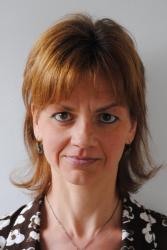
Ms. Eszter Nagy
Department administrator
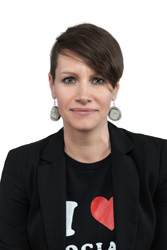
Ms. Viktória Borda
Head of the International Programme

Szilvia Borsosné Torma
Department administrator
Social Work, BA
Social professionals are employed in a variety of multi-professional settings; and support individuals, families and communities that experience difficulties in their lives. Our study programmes provide students with critical-reflective thinking skills necessary to understand the socio-cultural context of their work. Bachelor of Social Work graduates are aware of the complexity and dynamics of social systems and human behaviour. They are committed to values and ethics of Social Work and act according to the principles of social justice. Social workers promote the development of democratic social relations and social integration. Major modules of the programme: Theory and Practice of Social Work, Social Policy, Sociology, Economics, Social Law and Administration, Psychology, Public Health, and Education. Students are required to spend the 7th semester on placement, depending on their personal interests and institutional possibilities.
Social Work, MA
The study program is designed to train Social Workers who are competent in Social Work practice and are prepared to introduce professional innovations while protecting human rights and representing the values of social justice. As professionals, they utilize their extensive knowledge and specific competencies on human behaviour and on social systems; thereby serving purposes of social integration, strengthening democratic relations, and promoting human development. They are able to elaborate on social issues and conduct research to work out professional alternatives; to design, manage and evaluate social services; and represent the profession in a variety of public spheres. Professional requirements are in accordance with international scientific results and professional expectations. Students are prepared to continue their studies to obtain a PhD degree.
Social Policy, MA
The aim of the program is to train social policy professionals who, with their acquired theoretical and methodological knowledge, are able to participate in the formulation of policies in the field of societal and social policy, to contribute to the operation of the service system, to represent social interests and to theoretical research, research and development of social and social policy education. They are ready to continue their studies in doctoral programs.
Institute for Human Development and Cultural Studies
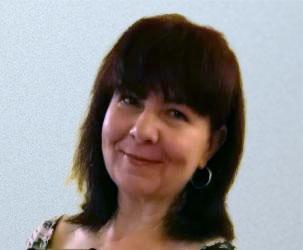
Ms. Ágnes Baros-Tóth, MBA, MSc, MA
Head of the International Programme
Human Resource Counselling

Dr. Balázs Bánk Németh Phd.
Head of the International Programme
Andragogy (Adult Education)
Adult Education, MA
The aim of the programme is to train adult learning and education professionals, who understand that education is a process of human, cultural and social development that takes place in the family/at home, in communities, in schools and the workplace. Through this programme, participants will collect valuable knowledge and quality skills to work effectively with adults either on formal or in non-formal structures or, additionally, to work in policy or providing services for adult learners at institutions or organisations of adult education at local/regional, national or international levels.
Human Resource Counselling, MA
The purpose of this course is to educate and train professionals who are experts in providing help to organisations and companies regarding any area of human resources management, one of the functional areas of leadership counselling. In this course, besides laying a sound theoretical and methodological foundation, students will acquire up to date methods and techniques of strategy building, change management, personnel work and human resources management. Great emphasis is laid on specific aspects of organisational and social psychology relevant to the objectives listed. In accordance with European tendencies special attention will be paid to career-planning and counselling, and a major discipline is devoted to equal opportunity and the treatment of disadvantaged groups. According to the tradition of this faculty students will also deal with employment policy, adult education as well as the interdependence of education and the workforce market.

Ms. Melinda Réka Tóbi
Department administrator
Institute of Educational Sciences
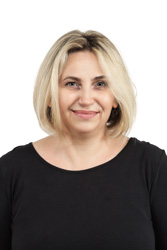
Dr. Renáta Anna Dezső Phd.
Head of the International Programme
Pedagogy

Dr. Zoltán Beck Phd.
Head of the International Programme
Romology
Pedagogy (Intercultural Educational Assistant), BA
At the University of Pécs, Faculty of Humanities you may study pedagogy and intercultural education as a Single Honours degree. Our graduates develop the transferable skills and practical experience to pursue successful careers in counselling, community education, community development, education policy and research, international development, public administration, educational journalism, special education needs.
Romology BA (Roma Studies) (Specialization in Boyash language and culture / Specialization in Romani language and culture), BA
The needs of Roma communities could be professionally and effectively represented by trained Romologists and the initiatives of the different organizations, institutions might be also represented through them among the local Roma communities in order to gain efficient communication to solve current issues. Collaborating with professionals from other fields – such as: sociologists, social politicians, teachers, lawyers, medical doctors, etc. – is essential for Romologists. In order to develop collaboration skills of our graduates, there are several courses during the program which are based on cooperative learning methods and group work. Field work and research methodology are in the core curriculum in order to prepare our graduates to work with real communities and other professionals after graduation. The two officially accepted languages spoken by Hungarian Roma are thought as well. Our graduates have the great chance to learn both of these languages: Boyash and Romani, and after 1 semester they could decide which languages they want to continue with to succeed a B2 level language exam till the end of their graduation.

Institute of English Studies
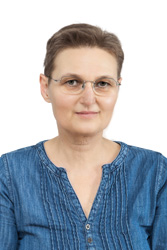
Dr. Gabriella Vöő Phd.
Head of the bachelor International Programme
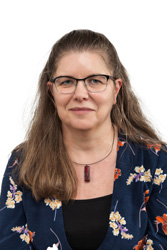
Dr. Gabriella Hartvig Phd.
Head of the master International Programme
English and American Studies, BA
Our goal is to develop professionals with a high level of theoretical and practical knowledge in the field of English Studies and related areas of the Social Sciences. This programme of study will enable our students to make a serious contribution to their field in theoretical and practical terms, utilising both inter- and multi-disciplinary approaches.
English Studies, MA
The goal of the degree programme is to train experts in the field of English Studies who have sound theoretical, methodological and practical knowledge of the English language and can apply such knowledge in practice. They have thorough knowledge and understanding of the literature, culture and the social and political systems of English-speaking countries, including Great Britain, Ireland and Canada, the major trends and research fields of modern theoretical and applied linguistics and their results that mainly apply to the English language. They can apply the acquired knowledge in the business sector, the media, education, diplomacy, at institutions engaged in international relations, in tourism, the publishing sector, tender agencies, local, regional and national government offices and, in general, in the cultural public sphere. They are prepared to pursue studies in doctoral degree programmes.
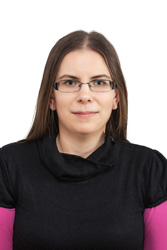
Ms. Júlia Valkai
Department administrator
Institute of German Studies
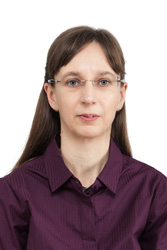
Dr. Krisztina Molnár Phd.
Head of the International Programme

Ms. Rita Kerner
Department administrator
Germanic Studies (German Studies or German as Ethnic Minority Language Specialistion), BA
German Studies: The aim of the programme is to provide students with basic knowledge in the core areas of German Studies on the one hand and about the German-speaking minority in Hungary on the other. Students acquire the German language at level C1 of the Common European Framework of Reference, and they are also enabled to understand and produce general political, economic, as well as linguistic and literary texts. Students of German as a Minority Language also learn about the history, language use, folk culture and literature of the Hungarian Germans.
German as Ethnic Minority Language: The BA programme German Studies aims to provide students with basic knowledge in the core areas of German studies. Students acquire the German language at level C1 of the Common European Framework of Reference, and they are also enabled to understand and produce general political, economic, as well as linguistic and literary texts. A completed BA degree opens up numerous career prospects in various fields, such as national and international companies, and entitles students to access a Master's degree programme.
German Language, Literature and Culture, MA
In addition, students can choose as an elective a linguistic or a literature culture module in accordance with their main field of interest. The linguistic module includes courses on sociolinguistics, contrastive linguistics, language norms and conventions in the past and the present, varieties of German, etc. The Literature/culture module offers courses on literary schools, trends, genres in German literature, contemporary German literature, theory of the media and intercultural media, intercultural and intertextual interpretation of literature, etc.
German as a Minority Language and Literature, MA
The goal of the degree programme is to train experts who have sound general and special knowledge and understanding of the history, language, language use, literature, intellectual and material culture and identity of the German minority in Hungary and as well as considerable expertise in the German language, literature and culture. The programme will also introduce students to the general legal, social and institutional conditions of minority life
Institute of Historical Sciences
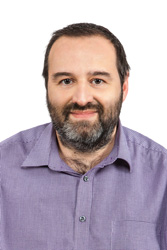
Dr. Levente Nagy Phd.
Head of the International Programme
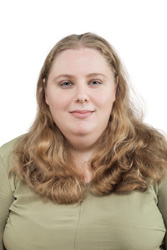
Ms. Réka Horváth-Zalavári
Department administrator
Archeology, BA
At the University of Pécs, Faculty of Humanities and Social Sciences you may learn Archaeology on bachelor level. Our undergraduates develop their knowledge and skills in various methods of the theory and practice of archaeology to achieve successful careers as technicians of excavation projects or as potential members of resarch groups. You will be suitable for the exploration, excavation and processing of archaeological sources and sites with the help of an archaeologist with master degree, as well as for the management of museum collections. You may be also familiar with other areas of cultural heritage in order to carry out the basic tasks in all institutions responsible for the exploration, protection, processing and presentation of cultural heritage. In addition, You can be prepared to continue Your studies in the Archaeology M.A. program. You will experience different teaching, learning and assessment methods including lectures, seminars, individual tuition, group-based, co-operative activities as well as individual and small group research projects
Archeology, MA
At the University of Pécs, Faculty of Humanities You may learn Archaeology on master level. Our graduates develop their knowledge and skills in various methods of the theory and practice of archaeology to achieve successful careers as leaders of excavation projects, as museologists or as potential members of resarch groups. You will be suitable for the exploration, excavation and processing of archaeological sources and sites, as well as for the management of such museum collections. You may be also familiar with other areas of cultural heritage in order to carry out the basic tasks in all institutions responsible for the exploration, protection, processing and presentation of cultural heritage. In addition, You will have the knowledge needed to fill the position of an archaeologist-museologist. You can be prepared to continue Your studies in Ph.D. programs. You will experience different teaching, learning and assessment methods including lectures, seminars, individual tuition, group-based, co-operative activities as well as individual and small group research projects. Student-centered teaching foster respectful, attentive and emphatic communication and can improve reasoning and collaboration skills, as well as adaptability. The University of Pécs is an Erasmus-partner of some distinguished Universities across Europe to research, develop and innovate in the field of archaeology. The Archaeology MA curriculum at the University of Pécs contains obligatory excavation, survey, museological and museumpedagogical practice in collaboration with various institutions.
Institute of Hungarian Literature and Linguistics
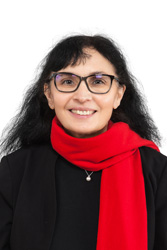
Dr. Jolán Orbán Phd.
Head of the International Programme
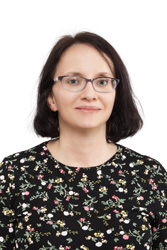
Ms. Karolina Egyed, Papné
Department administrator
Hungarian Literature and Linguistics, BA
The Hungarian BA-program is designed to train experts in Hungarian language, literature and culture. The graduates will be equipped with both the academic knowledge and the relevant language and practical skills to analyse literary texts, linguistic and cultural phenomena in their wider intellectual, intercultural and historical contexts.
Studying Hungarian language and literature at the University of Pécs entails the development and sophistication of students language and reading skills, as well as their ability to place and interpret linguistic questions and literary texts in their wider intellectual, cultural and historical contexts.
The program also requires the students to consider the methodology by which they analyze the linguistic, literary and cultural phenomena, to learn about contemporary Hungarian language use and literary forms and techniques, and to make comparative analyzes.
Institute of Philosophy, Art Theory and Classical Studies
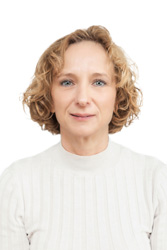
Dr. Adrienne Gálosi Phd.
Head of the International Programme

Ms. Andrea Mária Császár
Department administrator
Liberal Arts with majors: Art History, Classical Studies, Ethics, Film and Visual Studies, Philosophy, BA
In the Western cultural tradition liberal arts education has always been the ultimate mark of an educated person, and still today it provides a comprehensive education in the humanities with the foundation knowledge to enter a number of careers in cultural life, education, and government, or to go straight into graduate study in any subject of humanities. The core aim of the curriculum is to develop well-rounded individuals with general knowledge of a wide range of subjects and with mastery of a range of transferable skills. It is designed to enable students to develop critical thinking and problem-solving skills, effective oral and written communication skills, and a sense of social responsibility. You will be taught in small, interactive seminar groups, encouraging discussion and debate with teaching staff and fellow students. You will study a combination of required and optional modules, and choose a subject in which you will major, so no two Liberal Arts students have exactly the same programme. The programme offers you outstanding flexibility, balancing breadth of knowledge across disciplines with the opportunity for in-depth study in a field of your choice. The programme is structured with a system of major – a package of 80 study credits – and minor – 50 study credits to be chosen among the other liberal arts fields – and with required core courses.
Institute of Romance Philology and Cultures
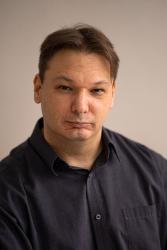
Dr. Krisztián Bene Phd.
Head of the French Studies International Programme
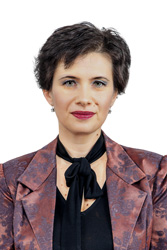
Dr. Beáta Dimák-Tombi Phd.
Head of the Italian Studies International Programme
Romance Philology and Culture (Specialization in French Studies), BA
La Licence en Études françaises a l’intention de former des experts en sciences humaines ayant des connaissances et des compétences approfondies concernant la langue, la littérature, la linguistique et la civilisation françaises et francophones. Les personnes ayant obtenu un diplôme dans cette formation sont pourvues des connaissances académiques et pratiques. Par conséquent, elles sont capables de comprendre et d’analyser des textes littéraires, linguistiques et culturels. En même temps, elles maîtrisent la langue française en oral et en écrit, ainsi elles peuvent exprimer leurs idées dans un milieu francophone. Grâce aux compétences acquises lors de la formation, les étudiants ayant obtenu leur diplôme ont le choix de poursuivre leurs études ou bien s’insérer dans le marché du travail.
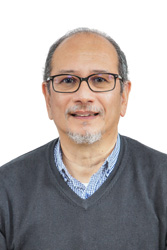
Dr. Lilon Domingo Antonio Phd.
Head of the Spanish Studies International Programme

Ms. Tina Zsolnay-Faragó
Institutional administrator
Romance Philology and Cultures (Specialization in Italian Studies), BA
All’Università di Pécs, Facoltà di Lettere e Filosofia, si può studiare Lingua e Letteratura Italiana come corso di studi autonomo. Coloro che conseguiranno il diploma di laurea svilupperanno specifiche conoscenze e competenze attraverso teoria e pratica per avviarsi a una proficua applicazione lavorativa nell’ambito della cultura e lingua italiana con lo sviluppo di diverse abilità di base, ricerca didattica, sviluppo internazionale e esigenze educative speciali. Oltre l’approfondimento dei campi suddetti un’attenzione particolare va dedicata anche all’interdisciplinarità. Inoltre, il corso dà la possibilità ai candidati di accedere a campi di studio e lavoro che vanno dal turismo fino ai vari livelli e modalità dei mass-media, informazione e comunicazione, oltre a muoversi con competenza nell’ambito dei beni culturali e del vasto universo della cultura italiana diffusa nel mondo. Gli studenti sperimenteranno diversi metodi di educazione, di apprendimento e di valutazione includendo in essi corsi, seminari, tutoraggio, attività di gruppo o cooperazione, e anche progetti sviluppati in piccoli gruppi o individualmente. I metodi di pedagogia sono centrati sulle competenze dello studente e promuovono una comunicazione corretta, attenta e pretica, tale da migliorare sia le abilità nel ragionamento e nella collaborazione sia nell’adattabilità.
Romance Philology and Cultures (Specialization in Spanish Studies), BA
El programa (BA) de Estudios Hispánicos (Lenguas y Culturas neolatinas mención Estudios Hispánicos) del Departamento de Estudios Hispánicos e Iberoamericanos del Instituto de Romanística de la Universidad de Pécs consta de 180 ECTS distribuidos en
1) Módulo de Introducción: Humanidades y Ciencias Sociales (12 ECTS)
2) módulo de Asignaturas básicas y troncales (108 ECTS)
3) Especialización en Lenguaje para fines específicos (50 ECTS)
4) bloque de Cursos optativos (10 ECTS).
El programa tiene una duración de tres años (seis semestres).
Institute of Slavonic Studies
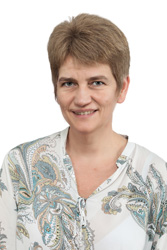
Dr. Tünde Szabó Phd.
Head of the International Programme
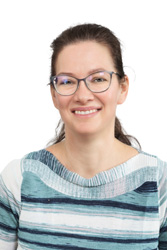
Ms. Boglárka Békési
Department administrator
Slavonic Studies (Russian Philology), BA
Данная программа направлена на подготовку специалистов в области русского языка и литературы. Студенты научатся работать со сложноорганизованными текстами, относящимся к разным сферам культурной и социальной жизни. В программу включены курсы по языкознанию, истории и теории литературы, русской культуре и искусству, страноведению России. Уникальность данной программы состоит в том, что студентам также предлагается модуль по изучению делового русского языка и бизнес-коммуникации. Успешное прохождение этого модуля дает возможность выпускникам быть конкурентоспособными специалистами и за пределами научного филологического профиля. Данная программа обеспечивает качественно новый уровень подготовки студентов-филологов за счет соединения разнопрофильных дисциплин и их междисциплинарного взаимодействия.
Учеба в Венгрии дает возможность познакомиться с венгерскими традициями русской филологии, культурой самой Венгрии, а также позволяет лучше понять русскую культуру на контрасте с венгерской и получить навыки межкультурного взаимодействия.
Institute of Social and Media Sciences

Dr. Tamás Pólya Phd.
Head of the Communication and Media Science International Programme
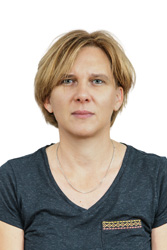
Ms. Gabriella Velősy
Department administrator
Communication and Media Science, BA
The program, with a Digital Media and Public Relations specialization at Pécs prepares students for effective work in the fields of professional journalism (of traditional, electronic and online kinds), and Public Relations, advertisement and organizational communication. The program lays great emphasis on practical training in media production and the development of students’ soft skills (empathic and assertive communication, teamwork, flexibility, creativity) and digital self-management capabilities.
We believe that with the spread of digital technologies fast and effective communication and online self-management became a must for companies and individuals alike, both globally and locally. We also believe that creative industries (e.g. advertisement, PR, design, organizational communication) are getting more and more important in commercial, institutional and NGO sectors, while the need for professionally trained journalists remains strong. As the very first department of communication and media in Hungary and with more than 25 years of experience in teaching we are keen to sharpen our students’s sensitivities for, and offer them convertible knowledge about, how communication and media works and how it is to be managed efficiently both in a local, Central-European and global context.

Dávid Erát
Head of the Programme
Data Analytics Track MA in Sociology
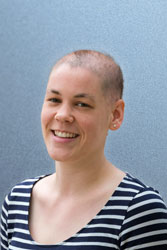
Ms. Sára Geiszelhardt
Department administrator
Sociology, MA
The MA program in Sociology at the University of Pécs, Department of Sociology offers students the opportunity to address social, demographic and policy issues from an applied research perspective. We focus on providing students up-to-date courses on social theories and social problems which serve as the basis for planning and conducting empirical research, utilizing quantitative and/or qualitative data from multiple sources. The goal of the program is to train experts who possess skills to address social problems and opportunities, excel in data analytics, and can visualize and communicate research results for various audiences. The applied knowledge our students gain is sought after by employers in multiple domains and is key to contemporary academic research. Throughout the four semesters of our program, lectures and interactive seminars offer theoretical studies ranging from the classics to contemporary social theories covering key topics of sociology such as education, gender, media, urban, rural and demographic processes. Courses on empirical methods assist students in acquiring high-level knowledge in an applied setting, with a track of seminars dedicated to independent research projects covering the whole research spectrum from the formation of a study topic to the selection of research methods, their implementation in data analysis, culminating in the presentation and dissemination of research results on diverse platforms. Students looking for careers in and outside academia receive career coaching to realize their plans.
PhD programmes

Dr. László Sári Phd.
Head of the International Phd Programme

Ms. Júlia Valkai
Department administrator
PhD in British, Irish, and American Literatures in English
The Program comprises two phases, the first of which consisting of three modules: core curriculum courses in the fields of literary theory, cultural studies and literary history stretching over the first three semesters; teaching, tutoring, mentoring and other department-related activities (second and third semesters); individual research for the thesis (continuous) and revision for the final exam (fourth semester). Having earned the required credits and passed the final exam, students enter the second phase, wherein they are required to finish their theses with the help of their supervisors, and submit it in two years after their final exam. The program is thus divided into two years of course-work and two years of research and writing, with tutors helping candidates all along on their way towards receiving their PhDs. As the faculty have different areas of expertise, we support individual research with a variety of focus in the fields of British, Irish and American literatures in English. In order to find out about what we teach and do research in, please check our webpage at the University of Pécs.
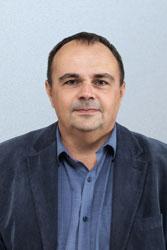
Prof. Dr. János Steklács
Head of the International Phd Programme

Ms. Nikoletta Dajkó-Ráncsik
Department administrator
PhD in Educational Sciences (Educational theory, history and sociology, romology)
The main goal of our PhD program is to provide knowledge on research in the educational sciences field, prepare students for this activity, and develop the skills needed to carry out research in this area. The main fields of the research activities of our doctoral school are the historical and theoretical perspectives of education, examination of teaching and learning processes, neuropedagogy, reading literacy, educational sociology, romology, and education of minorities. We expect students who are motivated to research these fields and intend to work in this research community.
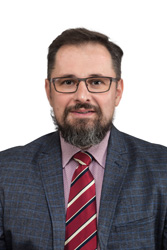
Prof. Dr. István Tarrósy
Head of the International PhD Programme

Ms. Mercedes Tóth-Kovács
Department administrator
PhD in International Politics
The aim of the doctoral program is to offer a wide variety of topics for the study of the actors, processes, intersections, and complexities of International Politics to those committed minds and talents who wish to foster research in any of the major relevant sub-fields in an interdisciplinary manner. The instructors and thesis supervisors of the program represent an extensive pool of expertise embracing Political Science, International Relations, International Law, Regional/Area Studies, therefore, provide substantial support to students both from methodological and theoretical perspectives. The interdisciplinary character of the program is strongly reinforced by the natural cooperation with other programs of the Doctoral School, including History, Ethnography, and Cultural Anthropology.
The program has been dynamically developing its circle of partnerships and collaborations both nationally and internationally. Doctoral students have the opportunity to join projects, take part in fieldwork, and participate in many exchange programs in different corners of the Globe. The host department also offers a wide range of scientific and intercultural events.
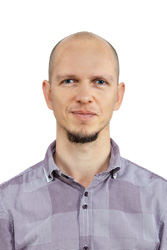
Ferenc Kocsor Phd.
Head of the International PhD Programme

Ms. Anita Velősy
Department administrator
PhD in Psychology
The program offers graduates in psychology, biology, medicine and other social sciences the opportunity to broaden their theoretical and practical knowledge to achieve new scientific results. Courses will cover, but will be not limited to, topics such as social cognition and social representation, psychophysiological measurements, and qualitative and quantitative research methods.
The study program consists of two separate blocks (Semesters 1-4, Semesters 5-8). During the first block, doctoral students master advanced research skills and take theoretical courses which help them to elaborate their own research plans and design their experiments. At the end of the 4th semester, students’ knowledge and research progress is assessed by a complex examination, which is a prerequisite for continuing doctoral studies. In the second block, intensive interaction between students and their supervisors is encouraged. Students are expected to focus mainly on their research, but also participate in teaching activities in order to prepare for a carrier in an academic environment. Research results have to be published in peer-reviewed journals and presented at conferences. A doctoral thesis must be submitted not later then the end of the 8th semester. After a succesful thesis defence, the applicant will be awarded a PhD degree in psychology.
